There’s a move afoot to rename the ten American military bases named for Confederates No more forts named for the traitors and white supremacists of the Confederacy. Here’s Elizabeth Warren on the subject:
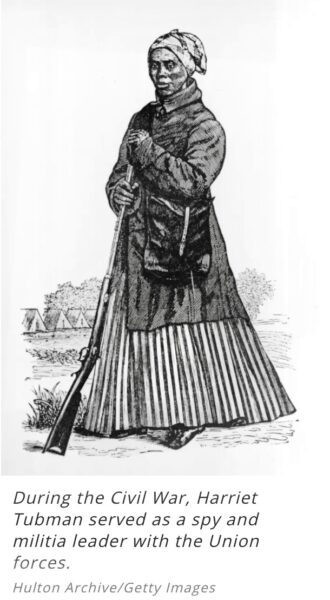 If they are to be renamed for successful military figures who were not traitors, how about Fort Tubman? Tubman – the first woman to lead an armed military operation in the United States.
If they are to be renamed for successful military figures who were not traitors, how about Fort Tubman? Tubman – the first woman to lead an armed military operation in the United States.
Fort Bragg in North Carolina is ripe for renaming as Fort Tubman. The successful military operation she helped lead – the Combahee Ferry Raid – was in neighboring South Carolina and Tubman was never paid for her services to the Union Army.
It’s the largest US Army base and home of Airborne and Special Operations forces. It was established in 1918 and named for Gen. Braxton Bragg, a native of North Carolina, who fought in the Mexican-American War and later for the Confederacy, commanding the Army of Tennessee during the Civil War.
In Take the Confederate Names Off Our Army Bases retired Gen. David Petraeus says it’s time to remove the names of all the Confederates who betrayed their country. Furthermore, he says, Bragg was an undistinguished military commander incapable of playing well with others. (Incidentally his mother was convicted of the murder of a freed slave.)
And this brought a poem to mind.
Six year old Ben is doing a project for school. He thinks everyone knows about Harriet Tubman and the Underground Railroad. But not so many – perhaps – about her role as soldier, skilled scout and spy for the Union Army during the Civil War.
The Fifth Fact
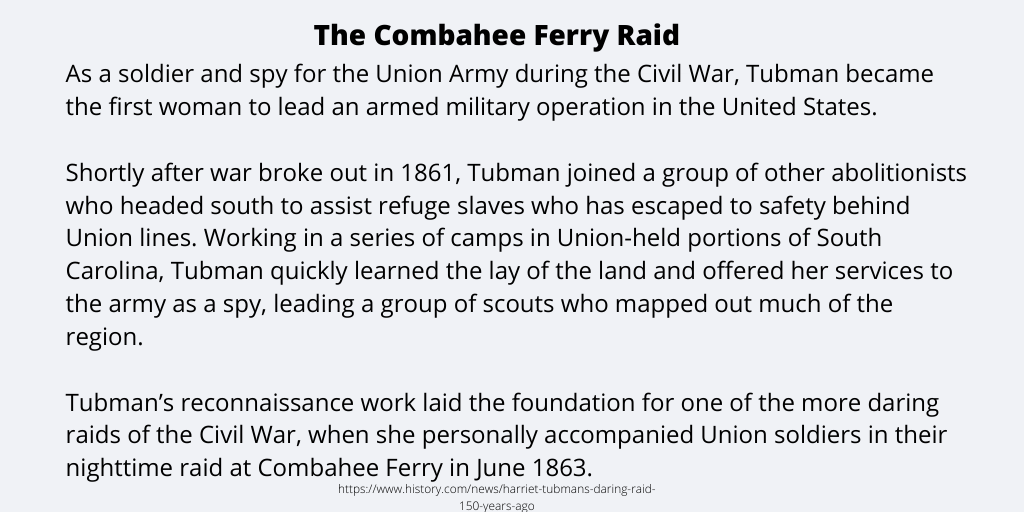
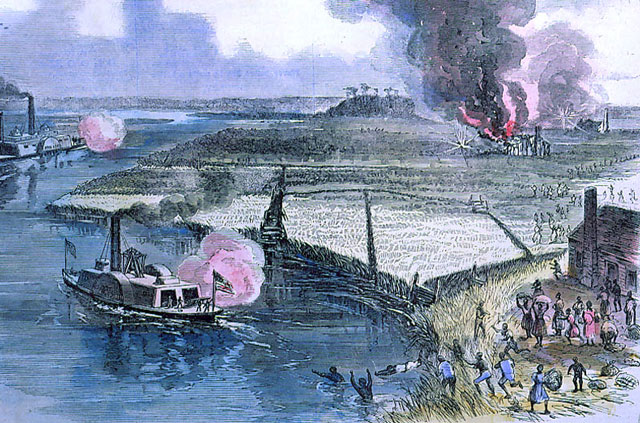
The Pratt Memorial Library.
And while we are at it, where’s that $20 Harriet Tubman bill?

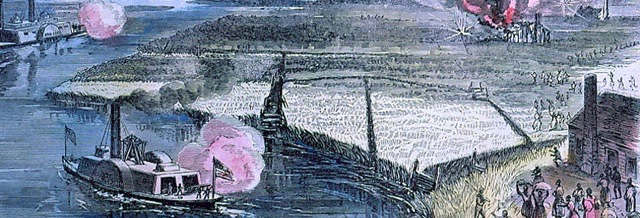
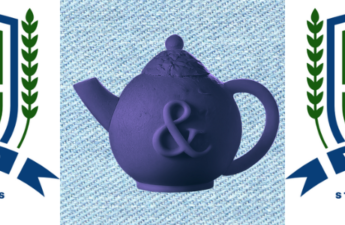

What is the form of the poem (The Fifth Fact) for my class project please answer ASAP
Thank you!!
GEorge´s last blog post ..Wings of Wax, Feet of Clay
Great post. We home educate our kids here in Scotland, and for the last 6 months have been concentrating on the USA, not just the tourist attractions, but the makings of this great nation.
Harriet Tubman was one of the favourite characters to learn about, and respected by us since reading the background story. The other favourite is Sacagawea.
I will be following you now, to learn and teach our children more about the history of the USA.
Steve´s last blog post ..Life is like a slice of pizza.
Glad it was helpful Steve. History is so interesting once you try and get beneath the textbook surface.
I highly recommend The 1619 project from the NY Times for another great set of insights into US history.
https://www.nytimes.com/interactive/2019/08/14/magazine/1619-america-slavery.html
Elizabeth Warren is a brilliant teacher!
We visited the store in Maryland where she was injured by the store owner and got a real sense of the geography where she was raised. Thanks for even more background. And why were bases ever named after traitors to begin with?
As to why the ten Army bases were named for traitors – senior Confederate commanders – who fought against U.S. troops during the Civil War in order to preserve slavery ….
The bases are all in the former Confederate states across the South. Most seems to have started as Army camps during WW1 and then rapidly developed in the years between WW1 and WW2.
The expanding Army needed large tracts of cheap land for sprawling bases and for the terrain and climate needed for training. The rural South had such land available. They placated local (white) community leaders by soliciting suggestion for names. Those locals went back fifty years to suggest their “heroes” of the Confederacy. (ironically is seems that many of these bases are named for bumbling, bungling and incompetent military commanders.)
The Army didn’t seem to mind the choice of names so long as they got their land and the place to establish the bases and build them fast.
So the base names were the product of a reassertion of Southern white supremacy. Many of the statues to Confederate leaders were put up in this same post WW1 era. – sixty plus years after the end of the Civil War. It was the height of the Jim Crow era when white violence (lynching etc) was widespread across the South.
The naming of the bases and the installation of so many statues at this time an assertion of white supremacy. They were symbolic threats and warnings.
Great information; thanks, Josie!
And she was never paid for her extensive contributions to the Union Army and she died in poverty.
It’s criminal – but typical – of the racist tRump administration to have put the issue of that banknote on hold. I just hope it’s fast tracked by President Biden. Symbols tell a story and they matter. Harriet Tubman was incredibly brave, resourceful, resilient, persistent and fierce. A true American hero.
Yes to all of that!!!
As a non-American I’m sorry that I’ve never heard of Harriet Tubman, she sounds heroic. Thank you for filling in that gap, and isn’t it a shame that she hasn’t been more widely recognised? What an excellent post.
She’s actually quite amazing. And she did all it without being able to read and write.
There was a recent film about her life – “Harriet” – which was criticized by some but which provided a good popularized account of her story. I wrote about it here.
https://www.josieholford.com/harriet-tubman/
It’s worth watching as an introduction.